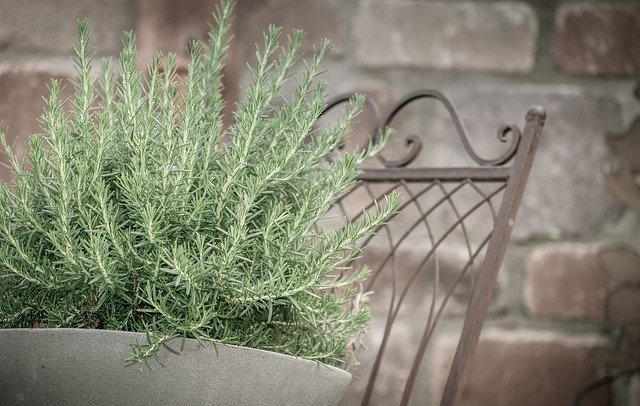Constantly sneezing, coughing, and feeling uncomfortable in your own home due to allergies are certainly not a good experience, but never let your allergies hold your dream of having a lush indoor garden! In this section, we’ve completed a list of the best houseplants for allergies for you to bring that allergy-friendly scenery into your house. Let’s take a look!
Table of Contents
Indoor Plants For Allergies
Flowering Houseplants That Do Not Cause Allergies
Touch-me-not (Impatiens)
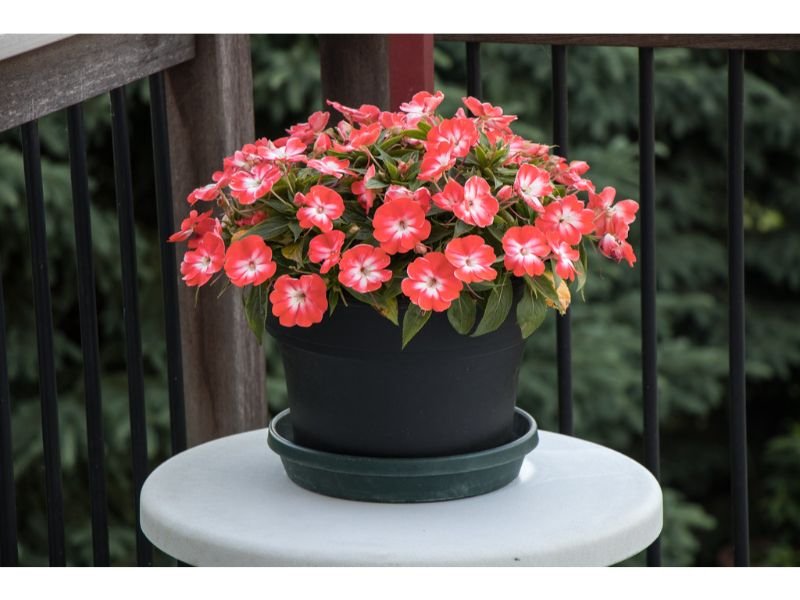
First, we get the famous impatiens. With a broad array of colors, from scarlet red to white, this flowering plant is the ultimate friend for gardeners with allergies as they produce typically large pollen. This makes impatiens a plant that is less likely to trigger allergic reactions by airborne pollen, so you can say goodbye to an itchy nose with this one!
Geraniums (Geranium)
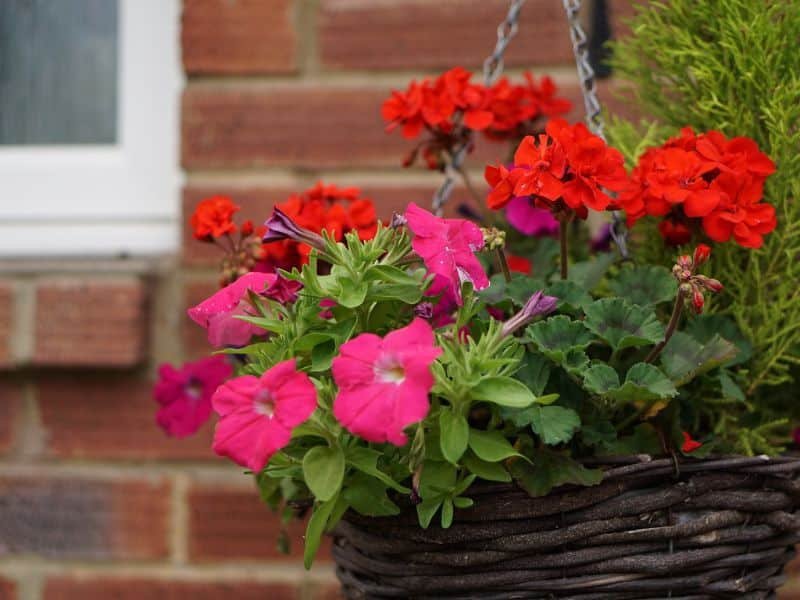
Geraniums are one of the best houseplants for allergies as they, similar to impatiens, have sticky pollen that would make it difficult to be blown by air. If you can’t provide a large growing space, worry not! This allergy-safe plant can be grown in pots and containers, making them definitely worth considering.
Orchids (Orchidaceae)

Are you the type of plant enthusiast that craves some challenges but worries about your annoying allergies? You might want to give your attention to orchids. Orchids have become a houseplant that does not cause allergies mainly due to their pollen, which are in the shape of clumps called pollinia–and are likely to be pollinated by wind.
Foliage Indoor Plants For Allergies
Snake Plant (Dracaena trifasciata)
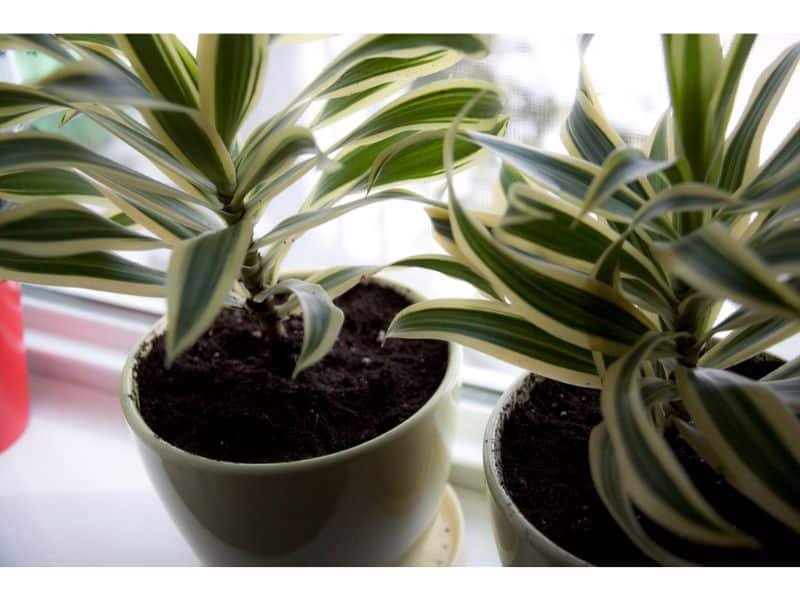
You might not be a fan of real snakes, but as a plant lover, it might be hard to refuse the beauty of the snake plant. This shade-loving plant is not only favored for its ease of maintenance but is also a generally non-allergenic plant that is drought tolerant. Another reason to grow snake plants is their air-purifying properties, as this plant is known to remove toxins like formaldehyde from the air.
ZZ Plant (Zamioculcas)
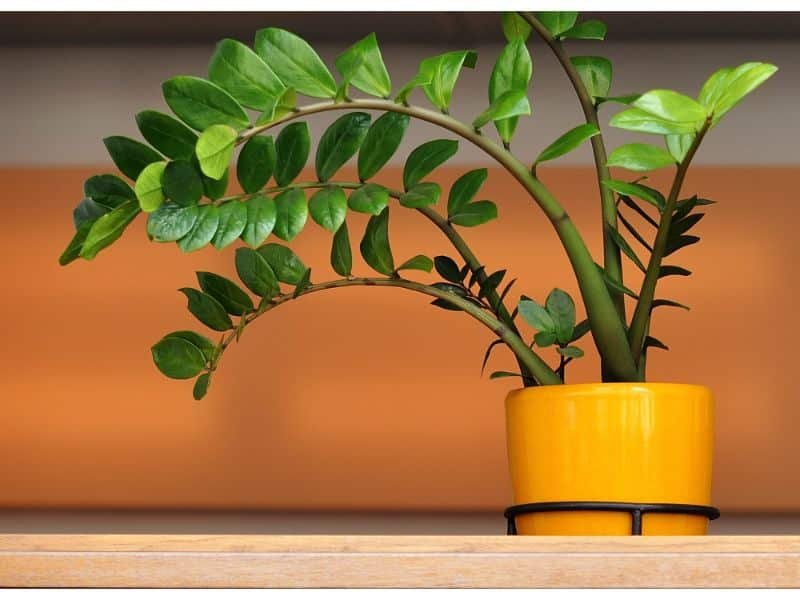
Although coming from the Aroid Family, which is famed for its toxic oxalate crystals components, the ZZ plant is considered safe for people with sensitivities as they rarely trigger allergic reactions. However, you need to keep your attention high if you have furry companions, as this plant can be mild to mediumly toxic for them if accidentally ingested.
Radiator Plant (Peperomia)

These warm and humid-loving plants are one of the best houseplants for allergies and busy gardeners. This plant would give you a hassle-free maintenance routine but still leave you with beautiful ovate or elongated ovate-shaped foliage that looks so shiny and smooth. In general, there are no known and proven allergic-triggering compounds found in radiator plants.
Hypoallergenic Vining and Trailing Houseplants
String of Hearts (Ceropegia woodii)
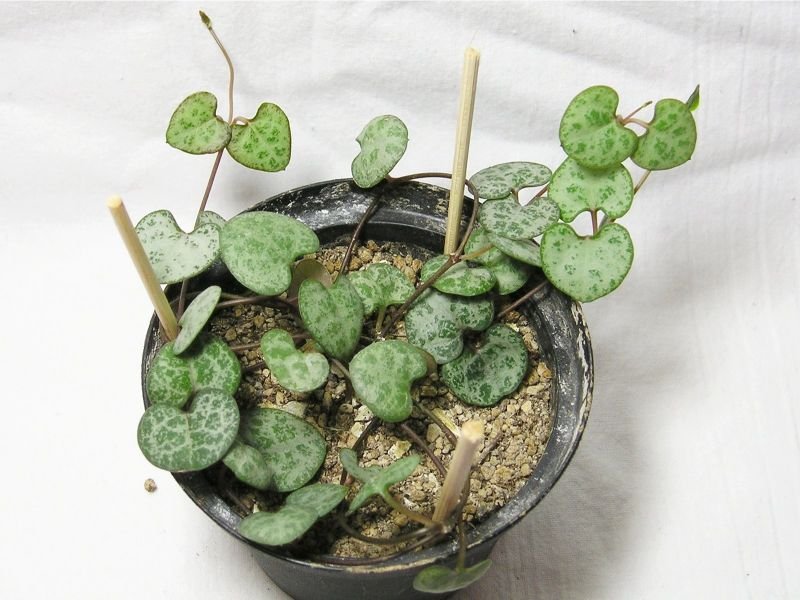
Also known as the sweetheart vine, string of hearts is an asthma-friendly plant that charms with a string of heart-shaped foliage. As one of the most recommended indoor plants for allergies, the string of hearts not only produces less pollen but also features clusters of tiny flowers that are odorless.
Devil’s Ivy (Epipremnum aureum)

Known for its lush, lime green, or dark green foliage, this moist-loving plant would be your soul mate if you are struggling with asthma and respiratory problems. Devil’s ivy produces a very minimum level of pollen and is also known for its air-purifying capabilities. Demanding easy-to-replicate requirements but giving so much for their plant parent, it’s no wonder why devil’s ivy is one of the best houseplants for allergies alike.
Swedish Ivy (Plectranthus verticillatus)
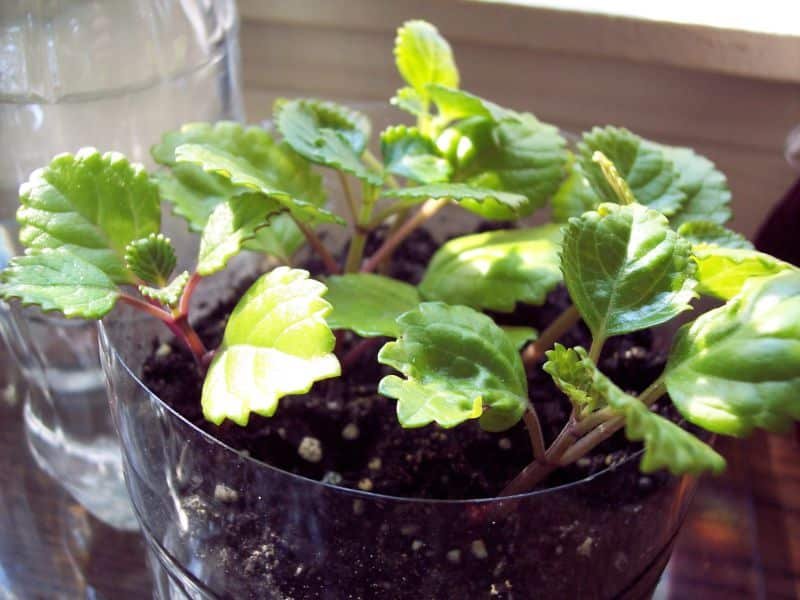
Swedish ivies are such excellent indoor plants for allergies due to their ability to remove pollutants and irritants from your house. This plant is also non-toxic for your furry friends! This plant loves bright but indirect light and requires slightly acidic soil to thrive. Although considered safe for humans and pets, it’s highly recommended to never ingest, either accidentally or not, any part of the plant.
Low-Allergen Herbs
Oregano (Origanum vulgare)
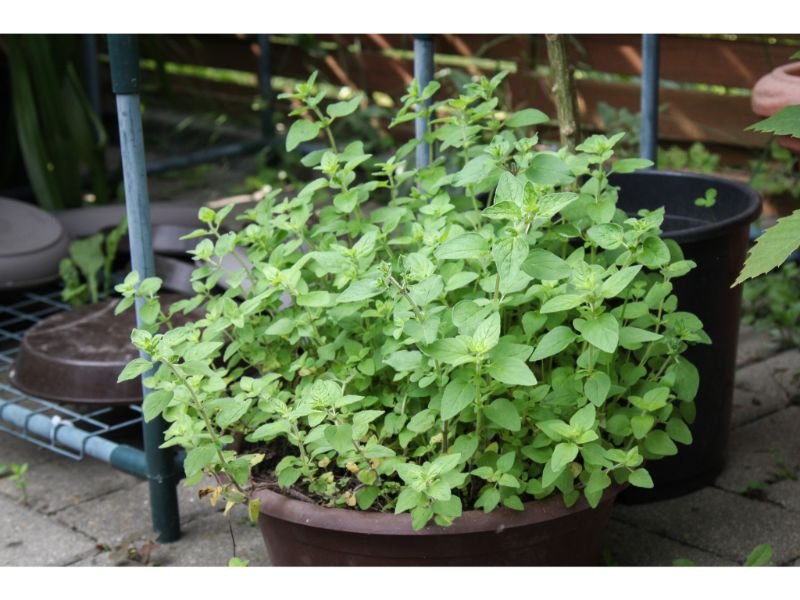
Whether you’re new to the world of gardening or not, you might have heard of this well-known herb before. They do produce pollen, but it’s minimum and the risk of your pollen allergy triggered by this plant is relatively low. A little plus point about these best houseplants for allergies is that they contain essential oils that can be used for various health benefits.
Rosemary (Salvia rosmarinus)

You might have found rosemary in your plate of juicy steak, but did you know that this herb is not only useful for the culinary world but also for people with sensitivities? Rosemary is known for their low-allergenic potential, however, they have aromatic foliage that might be triggering those who are sensitive towards certain fragrances.
Lemon Balm (Melissa officinalis)
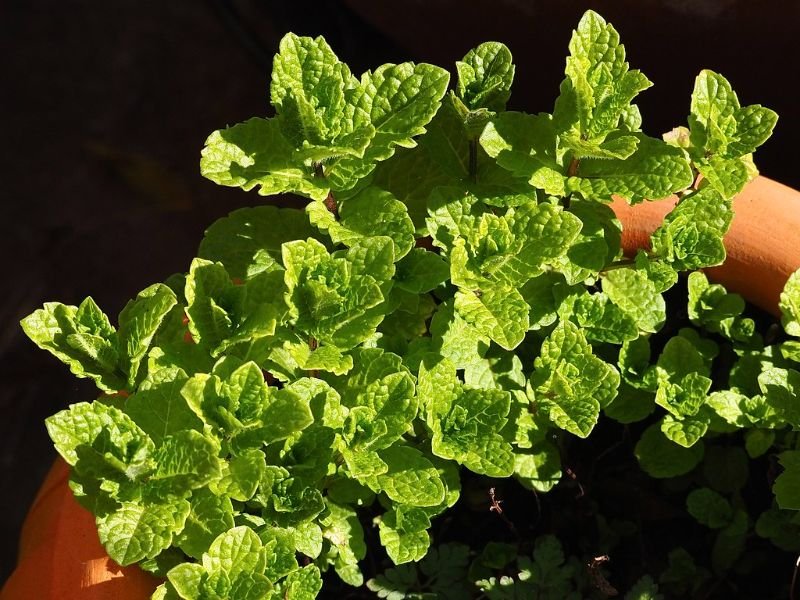
With their gentle antihistamine, lemon balm possesses soothing properties that could help beat your pollen allergy. This plant is also unlikely to aggravate your allergies as they have a long reputation for being a low-allergen plant. From being made as a cup of relieving tea, and essential oil, to saving your lips from cold-related chapped lips, it’s easy to fall in love with this plant!
Allergy-Friendly Succulents
Echeveria (Echeveria)

Generally, almost all species of succulents are the best houseplants for allergies, and echeveria is no exception. Echeveria itself does produce tiny flowers, but they are coming with minimal pollen and are not known to have toxic compounds in their fleshy, rosette-shaped foliage. Some of our favorite succulents are:
Echeveria Mebina
Black Rose Echeveria
Snow Bunny Succulent
Echeveria Peach Pride
Graptopetalum Ellen
Living Stone (Lithops)
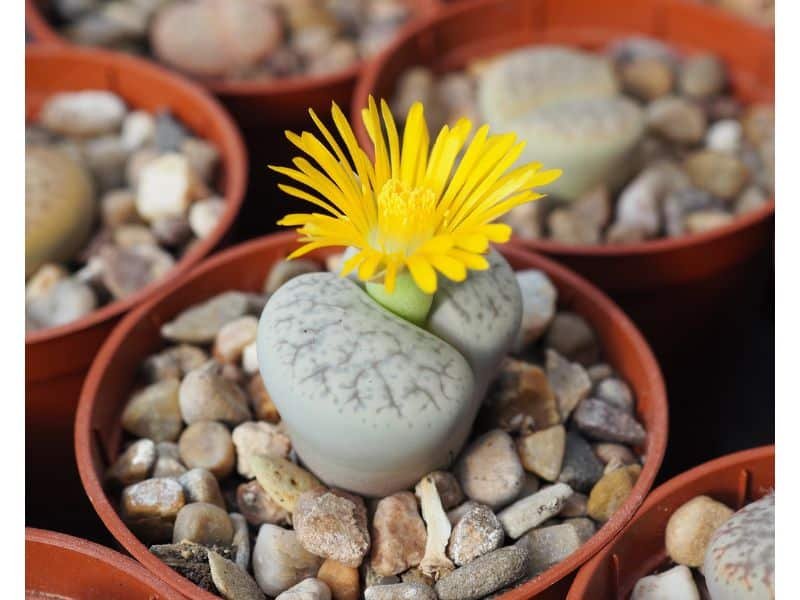
You can fool your guests by planting living stones, a plant that lives up to their name. With unique fleshy leaves that are bright in color but very stone-like, lithops are not only eye-catching, but they are also hypoallergenic to both humans and your furry companions! This plant is tolerant to drought but it’s best to keep their soil moist and well-draining.
Pigmyweeds (Crassula)

Last but certainly not least, pigmyweeds are the best houseplants for allergies that would stun you with a variety of colors and shapes. Similar to the previous plants, pigmyweeds bear minimum pollen, however, certain varieties like fragrant crassula (Crassula fascicularis) produce sweet scents that might not be suitable for gardeners with fragrance sensitivity.
Can Houseplants Improve Indoor Air Quality for Allergy Sufferers?
Yes, certain houseplants are proven to improve your indoor air quality by removing toxins such as benzene and formaldehyde, presenting you with fresher air. Nonetheless, it’s crucial to note that not all the best houseplants for allergies are blessed with this air-purifying ability. But still, these plants are highly recommended mostly for their low-pollen producing and odorless flowers–which are the common triggers for people with allergies.
The Bottom Line
To conclude, there are no houseplants that can guarantee a complete absence of allergy, due to people having different mechanisms towards certain sensitivities. Nonetheless, by picking one of these best houseplants for allergies, you can minimize the risk of triggering allergies and create a more allergy-friendly environment.

New author in the hood. Loves gardening and flowers are my spirit animals (yes I know they are not animals but I insist). I will be covering most of the flowers’ topics here and occasionally random though as well.





